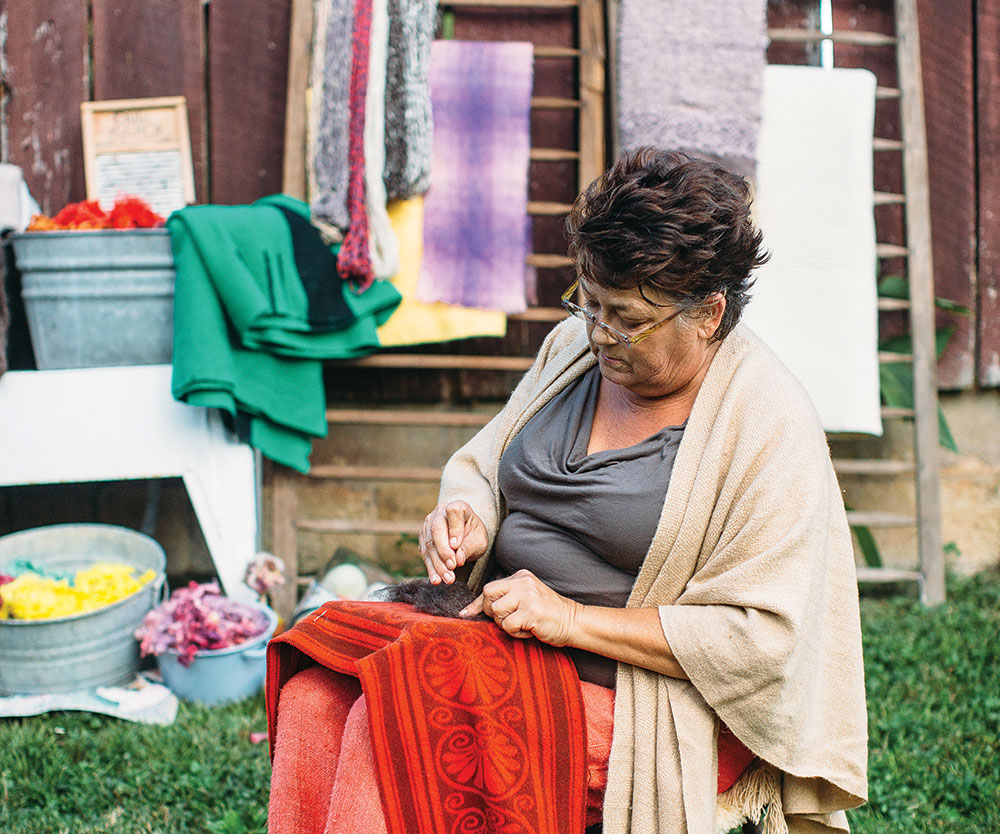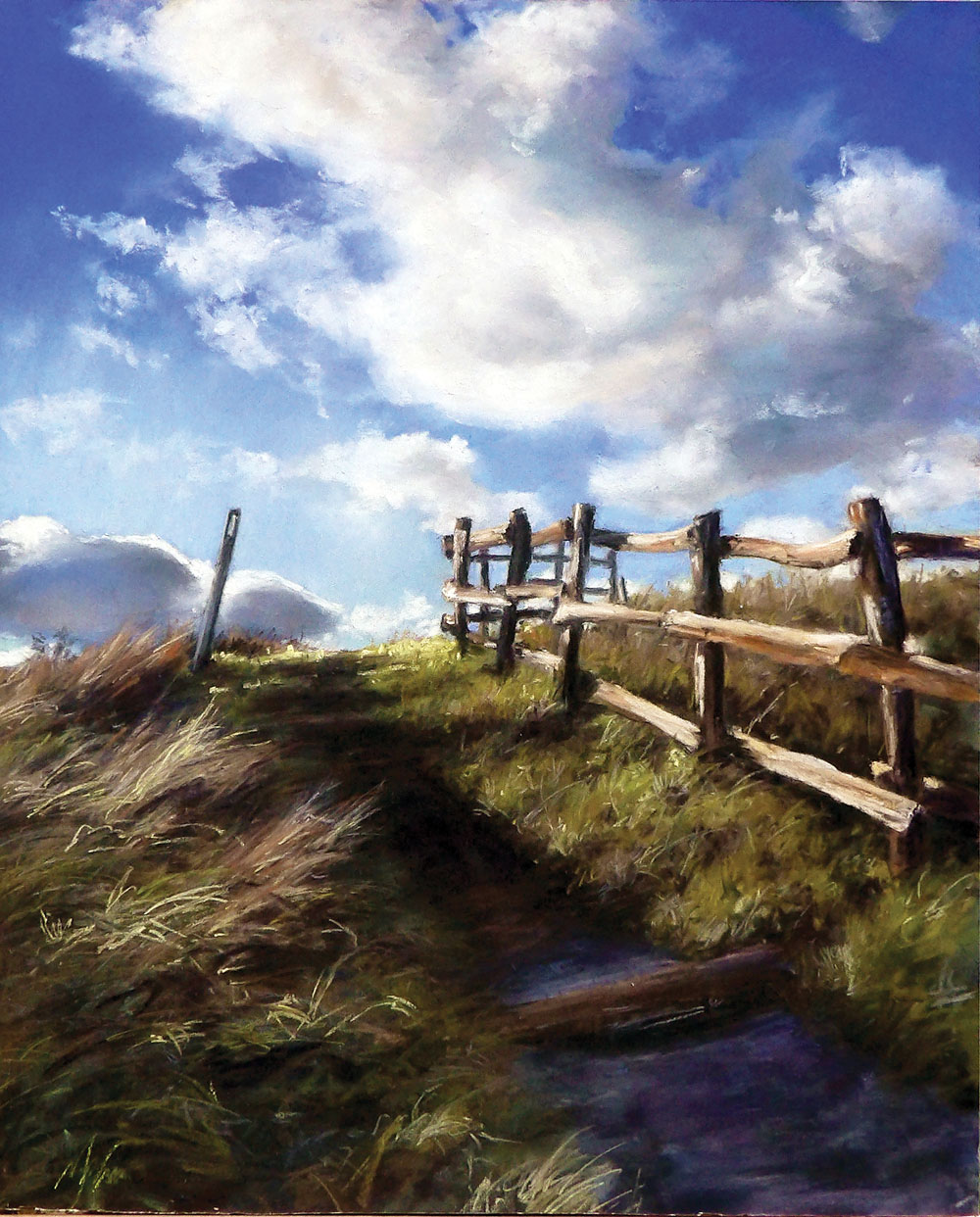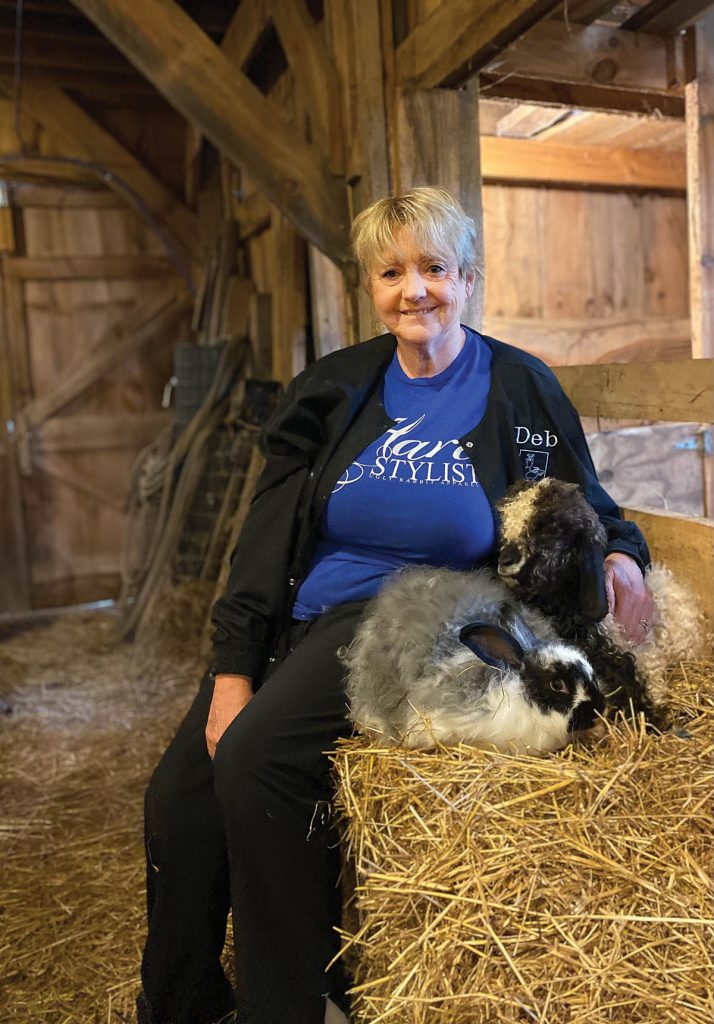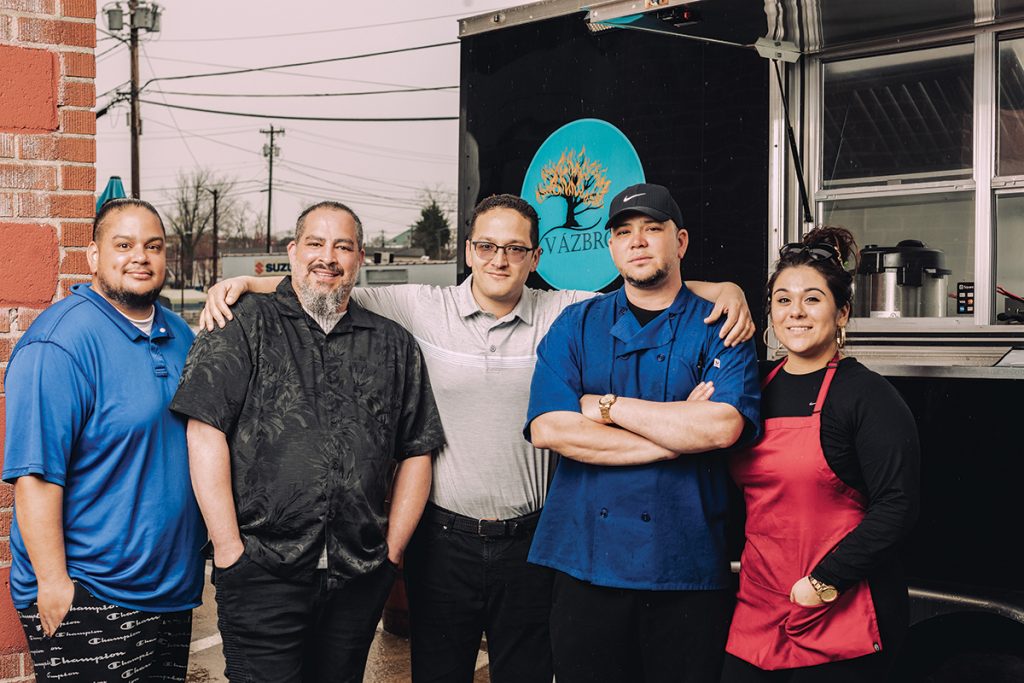
Faith Lane-Johnson of Etowah is one of dozens of fiber artists from across the country who vend at the Southeastern Animal Fiber Fair. Photo by Tim Robison.
Colorful yarn, hordes of people, and packs of long-legged llamas are the hallmarks of the annual Southeastern Animal Fiber Fair. But for fiber artist Faith Lane-Johnson, it’s about something much smaller: tiny needles that speak volumes.
As the driving force behind Three Girls Fiber Company, she uses needle-felting techniques to transform forgotten blankets into pieces of functional art. Like many participants in the Southeastern Animal Fiber Fair, she looks to the past to create fiber pieces for the future.
The fair is a three-day celebration of all things fiber. Crowds gather around live demonstrations; children meet llamas and alpacas up close. A farm-to-yarn philosophy guides vendors from the Carolinas, Virginia, Georgia, Tennessee — even as far away as Texas and Colorado — as they share their wares with the eager public.
“The people that are into fiber are just so happy,” exclaims Lane-Johnson as she describes the rush of people who fill the WNC Agricultural Center. “These women must wait all year!”
It’s not that men aren’t welcome at the fair. But Lane-Johnson says women make up the majority of the fiber enthusiasts she meets. Three Girls Fiber Company (named for her now-grown daughters who were instrumental in the company’s early years) celebrates the determination of women and the fiber that inspires them.
When Lane-Johnson and her family moved from Florida to Henderson County in the mid-1990s, her young daughters desperately wanted livestock to call their own. Their three acres in Etowah slowly evolved into a family farm after her oldest daughter was awarded a 4-H loan.
As an art teacher and former fiber-arts major, Lane-Johnson knew she could put these farm animals to good use. But before she could begin her adventures in wool, her family had to learn how to raise sheep.
“It was going to be an educational experience, and next thing you know, I went from a respectable art teacher to a sheep farmer.”
Her family still keeps about a dozen Cotswold sheep, a rare heritage breed known for its curly fiber.
Over the years she discovered the joys of turning vintage wool blankets into functional pieces of art. She revels in thrift-store finds and says she can spot a prized wool sweater on a table of inferior acrylic from across the room.
Creating a distinction between high-quality homespun fiber and store-bought imitations is at the heart of the Southeastern Animal Fiber Fair. Lane-Johnson believes that connecting the public and especially children with where their clothes come from is essential.
“People forget how important wool is,” she muses. “Our animals really do make our clothing.”
The Southeastern Animal Fiber Fair happens October 30, 31, and November 1 at the WNC Agricultural Center in Fletcher. 9am-6pm Friday and Saturday, 9am-4pm Sunday. $3/general admission. www.saffsite.org



